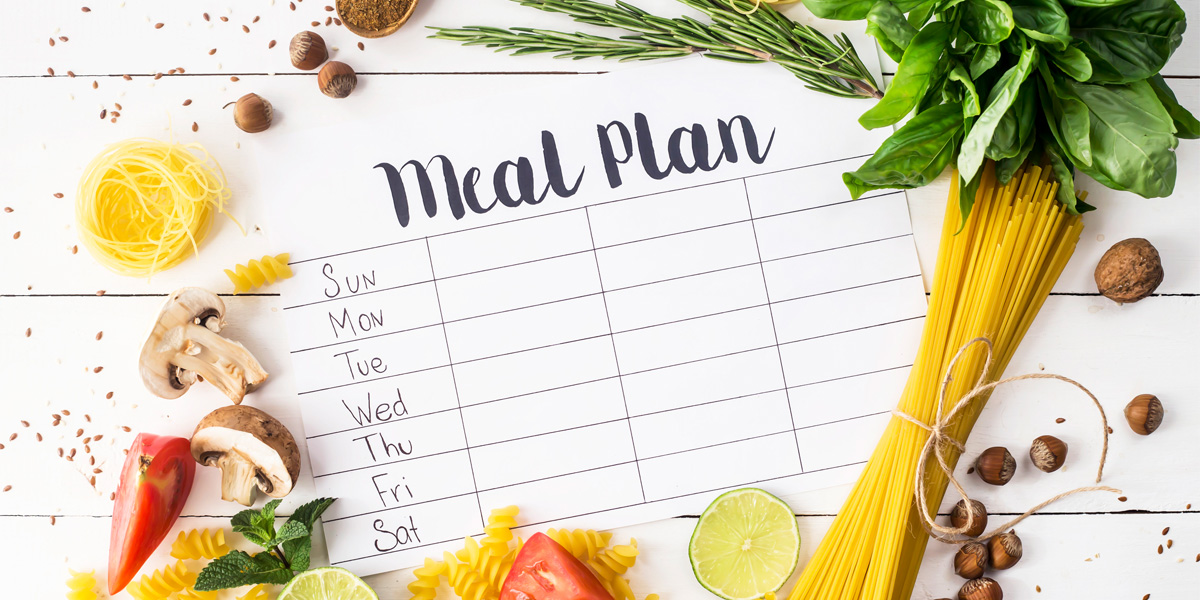
Meal planning is really about time management, healthy eating, being money smart, being prepared, and making all this process as low stress as possible. Not having a plan, and the ingredients we may need on hand for meals, can lead to more take-out dinners or processed meals, which are traditionally high in fat, sodium, calories and are more costly than home-cooked meals. Those who have a weekly menu tend not to spend as much money on take-out food or overbuy processed food on a whim. Planning a weekly menu doesn’t have to be difficult and can help you to prepare healthy meals.
To create a plan, you should first have a clear understanding of your family’s calendar and lifestyle. Busy families with many activities will need a plan to fit the schedule. Make sure to build flexibility into your menu if you have a family that is more spontane
Follow up by creating a positive action plan
- Make a shopping list.
- Go shopping in your own pantry, freezer, and refrigerator for what you can use to complete your dinner menu.
- Start with items for your meals and staple items, then add snacks and household goods to your shopping list.
- Make a list of healthy snacks for each person in the household. What healthy snacks would the person eat at home, at work, or on-the-go.
- When will you create a meal plan and who will be involved in planning, shopping, and preparation of meals?
- Get your family involved in creating the menu. Make a goal of trying a new recipe once a month.
- Get your recipes from trusted, healthy sources. Look at reviews of the recipe if you aren’t sure.
- Look at recipes for the entire meal. Entrees, whole meals, sides, snacks, salads, and healthy desserts. Look for a variety in all—things that can work ina slow-cooker, sheet pan meals, one pot meals, stir-fries, casseroles, soups etc.
- Think simple for weekday grab-and go.
- When and where will you shop? Who will join you?
- You may take some time to look through ads for your local grocery store if you would like to save money or look at schedules of farmer’s markets if you want to make sure your food is local.
- When will you prepare food for a week ahead? Who will help?
- Establish order by making time to prep and cook food, start with a clean kitchen, clean fresh fruit, and vegetables.
Find what you enjoy about each step of the process, and acknowledge and plan for any barriers that you may encounter, then you should be able to find a way to make the meal planning process more enjoyable for you.


